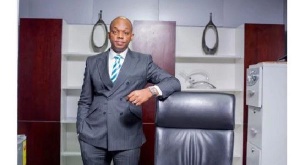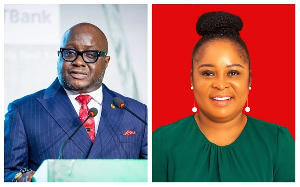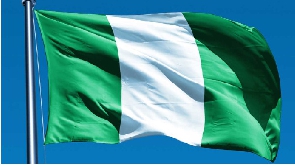Shareholders of uniBank, one of five local banks, which were recently merged into a new entity – Consolidated Bank – have called on the Bank of Ghana (BoG) to provide them with an official copy of the KPMG report on the financial condition and future prospects of their bank.
According to the shareholders, they want a copy of the report to enable them address its contents.
They said they were not aware of a report purporting to be from KPMG on the financial condition and future prospects of uniBank Ghana in the media.
The shareholders also said what bothered them the most was the fact that they wrote to the Central Bank in a letter dated 3rd August, this year, to request a copy of the report but were told on 13th August, 2018, through a letter from the secretary of the Bank that it was unable to provide a copy of the official administrator’s report to them.
“No reason was assigned for the refusal to provide the report to the shareholders…It’s unacceptable for the Bank of Ghana and KPMG to deny shareholders access to the report, even as material in the report is being widely disseminated to discredit uniBank and instigate public contempt and opprobrium against uniBank.”
Also, they said no opportunity had been provided to shareholders of uniBank to respond to any purported findings of KPMG and “yet they were being tried by the court of public opinion without the full facts of the case.”
Additionally, they stated: “We note that in the purported report it is stated that the said report should not be made available or communicated to any party without the prior written consent of KPMG.”
“There is a further statement by KPMG that we have not sought to verify information contained herein…accordingly we are unable to determine the extent to which information and explanations provided to us are complete and accurate and the report should be read in that context.”
The shareholders said that the recent appointment of KPMG as the Receiver in respect of some assets of uniBank and four other banks showed that it (KPMG) was “seeking to benefit from the report that it provided to the Bank of Ghana through a further paid engagement, a clear conflict of interest situation which does not put KPMG in a good light.”
Revelations
It emerged that uniBank’s shareholders and related parties allegedly acquired several real estate property in their own names using the funds they took from the bank under questionable circumstances, according to the Governor of the Central Bank, Dr. Ernest Addison.
An amount of GH¢5.3 billion, constituting 75% of total assets of the bank; out of total customer deposits of GH¢4.3 billion, GH¢2.3 billion was not disclosed to the BoG.
As at March 2018, UniBank had enjoyed a total of GH¢2.2 billion in the form of liquidity support from the Central Bank over two years but the bank could not turn things around.
The Central Bank, as a result, directed the executive management of the private bank to give way to new control by putting KPMG in charge in March.
At the beginning of August, 2018, the BoG revoked the licences of UniBank, Beige Capital, Sovereign Bank, Construction Bank and Royal Bank and merged them into Consolidated Bank Ghana Limited.
It turned out that loans and advances to customers were also overstated by GH¢1.3 billion in prudential returns to the Bank of Ghana while over 89% of UniBank’s loans and advances book of GH¢3.74 billion as at 31st May 2018 was classified as non-performing.”
Reports say the promises by the shareholders and related parties to refund the monies by mid-July 2018 and legally transfer title to assets acquired back to uniBank were not honoured.
“Based on the Bank of Ghana’s review of KPMG’s assessment of the financial condition of UniBank, the Bank of Ghana has concluded that uniBank is insolvent and has no reasonable prospect of rehabilitation or a reasonably credible path to viability,” the Governor had said.
UniBank, the reports said, granted a loan of GH¢61 million as initial minimum paid-up capital to Construction Bank contrary to the Central Bank’s regulations but the facility has become inaccessible.
Additionally, UniBank was said to have given out a total of GH¢1.6 billion to shareholders and related parties in the form of loans and the BoG says it was advanced without due process and in breach of relevant provisions of the Bank of Ghana Act 930.
In addition, the shareholders and related parties had also been given amounts totalling GH¢3.7 billion, which were neither granted through the normal credit delivery process nor reported as part of the bank’s loan portfolio.
They were also not secured with collateral and attracted no interest income for UniBank.
The Central Bank said that UniBank persistently maintained a Capital Adequacy Ratio (CAR) below zero (currently negative 24%), making it technically insolvent in contravention of Section 29 of Act 930, which requires a minimum CAR of 10% to be maintained at all times.
The private bank also persistently suffered liquidity shortfalls and consistently breached its cash reserve requirement, among others. A key shareholder of the bank managed to obtain liquidity support from the Bank of Ghana using third-party banks as its agents.
The bank also failed to comply with a directive of the BoG dated 26th October, 2017, under section 105 of Act 930, prohibiting the bank from granting new loans and incurring new capital expenditures and also failed to comply with several other regulatory requirements.
Regulatory requirements like lending to a number of borrowers in excess of its regulatory lending limit (single obligor limit) under section 62 of the Banks and SDIs Act, 2016 (Act 930); borrowing from the inter-bank market without the written approval of the Bank of Ghana when its CAR was less than the prescribed 10% in breach of section 66(1) of Act 930 were all cited.
Click to view details



Business News of Tuesday, 21 August 2018
Source: dailyguideafrica.com
Unibank directors fight back
Entertainment

CEO of Caveman Watches ties the knot in private ceremony
Opinions














